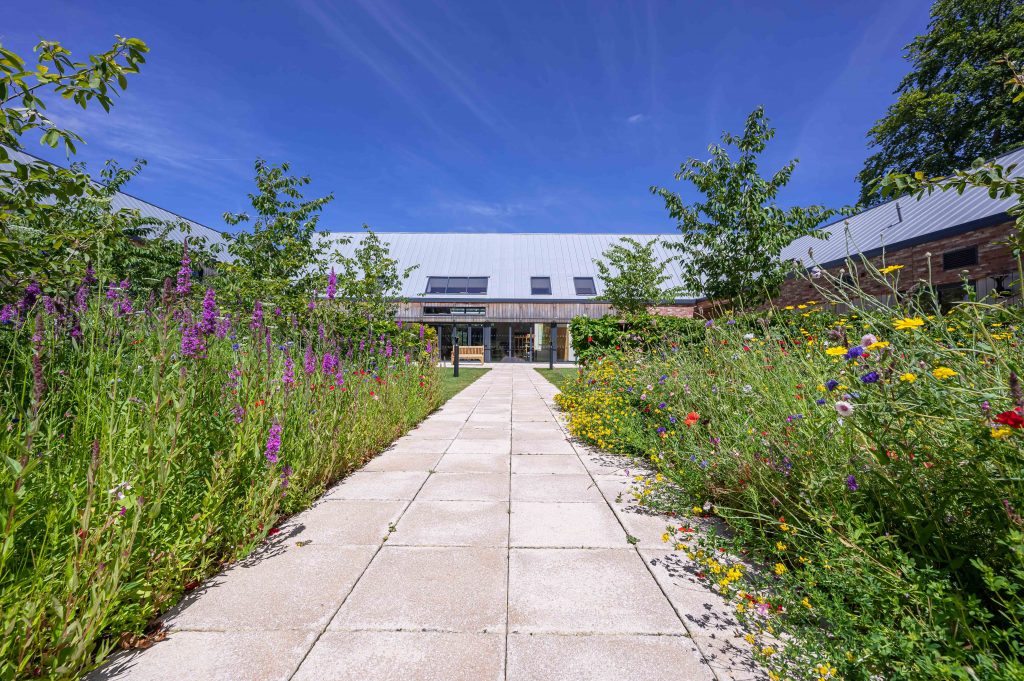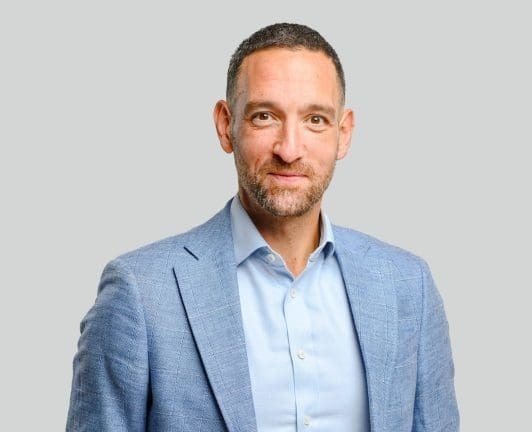What’s included?
- Introduction
- What is aftercare in addiction recovery?
- Why is aftercare in addiction recovery important?
- Top 5 reasons why aftercare is important
- How to maintain sobriety after treatment
- What aftercare does Delamere provide after treatment?
- References
Can 28 days in rehab help you stay sober for good? Addiction is very treatable but, just like other chronic disorders, like diabetes and asthma, it can’t be cured. Receiving treatment in a residential rehab facility is only the first step in a person’s recovery.
After learning the tools to cope outside the comfort of a wellness retreat, regular management of physical and mental symptoms is essential to maintain your sobriety. This is known as aftercare. Here are a few pointers on what’s involved and how it can ensure all your hard work pays off.
What is aftercare in addiction recovery?
Essentially, aftercare is the ongoing support and treatment given during the period after someone leaves an addiction treatment centre. It’s designed to help people stick to their goals of staying sober or free from drugs and enjoy a meaningful life.
There are several different ways to receive aftercare in addiction recovery:
One-to-one therapy
During your residential rehab programme you will have received one-to-one counselling from a focal therapist. After leaving treatment, this service will still be available to you as an outpatient and can help you to work through the ongoing challenges ahead.
Group therapy
Discussing your hopes and fears in a group setting may feel daunting at first. But opening up to others can provide powerful support following addiction treatment. One of the reasons group therapy is so effective is because it reduces feelings of depression, isolation and shame often associated with addiction (1).
Supported Living
It can be hard to leave the confines of a caring medical team and comfortable accommodation where all your basic needs are met. Supported Living can provide accommodation for people with substance use disorders after they leave care with 24-hour support to help you lead a full life.
Medication
Some people come into residential rehab with underlying conditions that need ongoing management. You may be prescribed antidepressants, for example, for mental health problems. And Methadone Maintenance Treatment (MMT) is often used to help people suffering with Opioid Use Disorder (OUD) long after they’ve left addiction treatment (2).
Occupational therapy
Aftercare in addiction treatment may also include vocational support. Going back to work can be overwhelming without the right people around you. Many companies now recognise addiction as a chronic illness and have protocols in place to facilitate a return to the workplace.

Need help for alcohol or drug addiction? Speak to Delamere
Why is aftercare in addiction recovery important?
Relapse is common in addiction recovery. Studies show 80-95% of people addicted to nicotine, heroin and alcohol relapse within the first year (3). It’s important to note that this isn’t a failing. It can take up to 90 days for the brain to ‘rewire’ after abstinence.
Relapse can happen for a variety of reasons:
- Exposure to certain people, places or things that trigger cravings
- Challenging emotions such as depression, anxiety and anger
- Lack of social support to maintain sobriety
- Overconfidence leading to complacency
- Pre-existing mental health problems
- Intense and uncomfortable withdrawal symptoms
- Social pressure to drink and take drugs
All of these common relapse factors can be prevented or counteracted by comprehensive support. That’s why aftercare in addiction recovery is so important.
Top 5 reasons why aftercare is important
1. Regular connection
Going from continuous care to fending for yourself is a shock for most people. In a rehab centre your social interactions take place with others in a similar mindset. No access to alcohol or drugs. Plenty of opportunities for self-care and emotional exploration. Losing that structure can be challenging. Connection and support from both medical professionals and peers are key to recovery.
2. Ability to cope
During residential addiction treatment you will identify the triggers that fuel your desire to drink or take drugs. This could be a certain group of friends, social occasions or the daily pressures of work and home life. Aftercare helps you spot the warning signs of a relapse and use coping strategies to manage them.
3. Readymade support network
Boredom and isolation are often cited as causes for relapse. A supportive environment involving love and understanding is crucial to long-term success. Aftercare includes access to group therapy and ongoing counselling or support groups that provide a lifeline when challenges arise.
4. Managing underlying conditions
Aftercare for addiction recovery can also help you address any co-existing health problems such as mental health disorders. Anxiety and depression may need to be managed as part of your ongoing therapy. This is part and parcel of a good aftercare plan and will help to reduce the risk of relapse.
5. Being accountable
When you quit alcohol or drugs without going through a treatment programme there isn’t the same level of accountability. It’s easier to shrug off the occasional mishap if the only person interested in your recovery is you. Taking part in aftercare means regular check-ins with a therapist to support your sobriety.
What factors are important in maintaining sobriety?
We’ve established that aftercare is going to help you stay connected; cope with triggers; access your support network; manage any additional health problems; and remain accountable. What else can you do to ensure continued abstinence? Some small lifestyle changes and wellness provisions will stand you in good stead.
Finding ways to destress
Stress is a key risk factor in the onset of addiction and relapse. Your aftercare package will include therapy visits but there are some ways you can manage stress through self-care. It could be something as simple as setting early bedtimes, taking time out to meditate or finding a new hobby.
Eating a balanced diet
Alcohol and drug addiction strip your body of the nutrients it needs to perform at its best. Now that you’ve completed rehab, carry on with the regular mealtimes and healthy habits you learned to get to this point. Eating more fruits, vegetables and foods low in salt, saturated fat and sugar are known to support brain health.
Staying physically active
As well as the obvious health benefits of living an active lifestyle, engaging in a new sport or taking part in a challenge can provide a different focus. While you’re out getting your steps or training for event there is less opportunity or temptation to fall off the wagon.
Protecting mental health
Be kind to your mind and only expose yourself to challenging situations if they’re unavoidable. There are lots of ways you can build resilience and foster a growth mindset. Journalling is helpful in validating your emotions, recognising your needs and understanding just how far you’ve already come.
Ultimately, maintaining sobriety is hard. It’s a multi-faceted process that involves huge commitment, a good support network and ongoing aftercare. With the right help, anything is possible.
What aftercare does Delamere provide after treatment?
At Delamere, your residential rehab programme is designed around you. The same can be said for aftercare. By this point we will have helped you understand the reasons behind your behaviour, break the cycle of active addiction and develop tools to cope with life outside of our retreat.
During the final phase of your addiction treatment we will help you to prepare for life at home. We use a variety of social coaching and desensitisation techniques as part of our aftercare service to support you in work and social situations.

You’ll leave our care feeling confident with a future-proof plan tailored to your individual needs and personal circumstances. Everyone requires different levels of support, and this built into each 12-month aftercare package.
We are here for you every step of the way. You can remain in contact with your personal therapist and peer mentors who will keep you connected, focused and on the right track. Aftercare is a crucial component of addiction recovery. We’ll make sure you can access everything you could possibly need to maintain sobriety.
If you are concerned about drug or alcohol addiction, call us confidentially to speak to a member of the team today. Contact Delamere
References
1. Substance Abuse Treatment: Group Therapy [Internet]. Rockville (MD): Substance Abuse and Mental Health Services Administration (US); 2005. (Treatment Improvement Protocol (TIP) Series, No. 41.) 1 Groups and Substance Abuse Treatment. Available from here.
2. Sun H, Li X, Chow EPF, et al. Methadone maintenance treatment programme reduces criminal activity and improves social well-being of drug users in China: a systematic review and meta-analysisBMJ Open 2015;5:e005997. doi: 10.1136/bmjopen-2014-005997.
3. Menon J, Kandasamy A. Relapse prevention. Indian J Psychiatry. 2018 Feb;60(Suppl 4):S473-S478. doi: 10.4103/psychiatry.IndianJPsychiatry_36_18. PMID: 29540916; PMCID: PMC5844157.






